"The fun of mahjong is that even if you choose the mathematically correct answer, it doesn't necessarily lead to the outcome."
Yoshitake Kodama, 5th year, School of Commerce
Hajime Asai, 1st year master's student in the Graduate School of Education
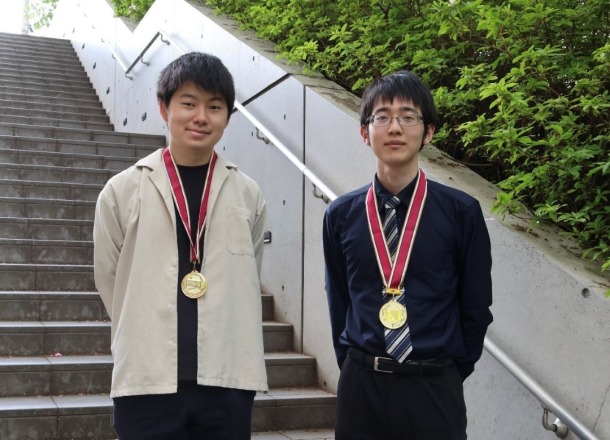
On Waseda Campus, holding the winning medals from the Student Mahjong Championship. (From left) Kodama and Asai
Kodama and Asai won the 28th Seijaku Flag Student Mahjong Championship, a tournament held in February 2024 to determine the top student mahjong player aged 18 and over, and took the top spot in Japan as a student player under the team name "Takakura Ichimon." The pair made it through the preliminary rounds, out of 522 participants nationwide, and then the fierce semi-finals and finals, but there's a story behind it that it wasn't actually this pair who won the preliminary rounds. The pair have devoted themselves to mahjong for four years at university while also juggling their studies, and we spoke to them about the appeal of mahjong, the secret to their victory, and their future prospects.
--Please tell us what made you start playing mahjong.
Kodama: I started playing online mahjong when a friend recommended it to me in my third year of high school. After I entered university, I saw an introduction to the Waseda Mahjong Club*, which had a milestone policy of "no drinking, no smoking, no gambling," and I was attracted to that policy, so I joined.
Asai: I originally liked watching online mahjong broadcasts, and that influenced me to start playing online mahjong in the fall of my first year of university. I enjoyed it so much that I joined the Waseda Mahjong Club in the spring of my second year. I joined later than Kodama, so even though we are in the same year, I call Kodama "Kodama-senpai" (laughs). Student club meets at a mahjong parlor outside of school, so this is actually the first time we've met on campus like this.
(※) An unofficial Waseda University student club. Meets on Tuesdays and Fridays at Mahjong Hall Fuji in Takadanobaba.
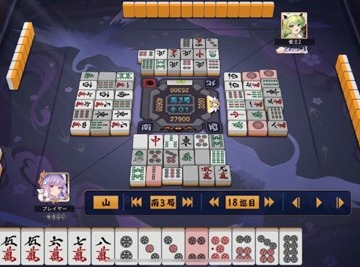
Online mahjong screen. Unlike real mahjong, a major feature of online mahjong is that the game is recorded on the device.
--What is the fun part about mahjong?
Asai: Mahjong is a game where you win by collecting 14 tiles (the same as winning with cards), and you get points, and compete for the final total points. Even if you make the mathematically correct choice, it doesn't necessarily lead to the result, which is what makes it interesting. Even if you look back at your mahjong games and make the best move you can after considering the pros and cons, it may not lead to the result, or conversely, a move you made while indecisively might turn out to be successful.
Kodama: It's the same for me. Mahjong has conflicting elements of pursuing probability and expected value, and elements that are decided by luck. If you pursue it seriously you can get to the bottom of it, but on the other hand, there are also times when victory or defeat is decided by luck alone, which is what I became addicted to.
--Your team is participating in the 28th Seijaku Flag Student Mahjong Championship (hosted by the Student Mahjong Federation) under the name "Takakura Ichimon." Can you tell us the origin of that name?
Asai: We took the surname of Takuma Takakura (graduate School of Social Sciences), who is a senior to us in the Waseda Mahjong Club and is a professional mahjong player (laughs). Takakura is famous in the mahjong world, and Takakura is the one who taught us the most about mahjong, so we used the name with respect.
Kodama: Since Takakura's generation, the Mahjong Club has been working hard to welcome people who are not familiar with Mahjong. It was Takakura who created a new, more open atmosphere in the Mahjong Club.
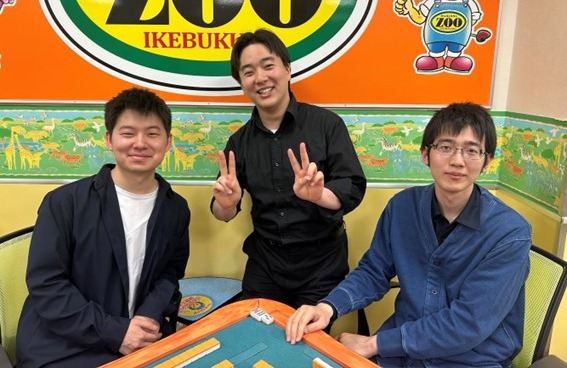
A photo with Takakura. (From left) Kodama-, Takakura, Asai-san
--How do you feel looking back on the 28th Seijaku Flag Student Mahjong Championship, in which you won?
Asai: In this tournament, we play in pairs, but each person plays alone and competes for the total score. Actually, my pair with Kodama was eliminated in the preliminary round once, but the same person can play in the preliminary round multiple times if it is at a different venue. So I paired up with the captain of the Waseda Mahjong Club and passed the preliminary round at a different venue. However, the captain was unable to play with me because he had passed the preliminary round with another pair. I quickly invited Kodama to play in place of the captain from the semi-finals. After passing the semi-finals, the finals were divided into two parts: the first stage (two games per person) and the final stage (one game per representative), and I entrusted the final stage to Kodama.
Kodama: I was very lucky in the final stage. When the second half of the final stage started, my chances of winning were less than 5%, but I won three times in a row at the end and we were tied. The rule was that in the event of a tie, the first player to catch up would win, so I won by a hair's breadth.
Asai: I was watching, and I thought it would be tough to win when the first half of the final stage was over. With the gap between them and the provisional first place team still large, Kodama missed his turn as dealer (where the winning points are multiplied by 1.5) in the South round (the second half of a game), so I thought it would be difficult to win with the limited number of rounds remaining, but he decided the game with a rush of winning like threading a pin, which was amazing.
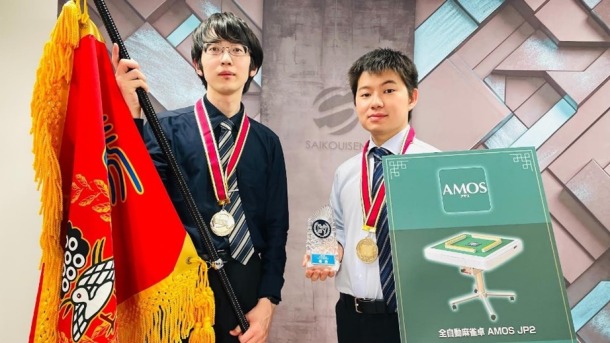
A photo of the team's victory in the Seijaku Flag Student Mahjong Championship. Asai is holding the red flag, and Kodama is holding the product display for the fully automatic mahjong table that was the winning prize. As the Waseda Mahjong Club is an unofficial student club, they don't have a club room or anywhere to put the mahjong table, so they gave the table to the runner-up, Nagoya Institute of Technology.
--Kodama's joint paper was awarded the Outstanding Paper Award in the Waseda Business School Student Paper Contest, and Asai went on to graduate school, so I think you have both been focusing on your studies. What were the difficulties you faced in balancing mahjong and your studies, and do you have any tips for winning despite your busy schedules?
Kodama: I had a hard time balancing my career choice and mahjong. I was undecided until the very last moment whether to go to graduate school or get a job, and I was also writing my graduation thesis, so I hadn't been able to play mahjong at all for the past year. I think the reason I was able to win even in that situation was because of the accumulation of experience up until my third year. From my fourth year onwards, I started to get advice from various people and use mahjong AI, and studied little by little.
Asai: I also had to do my teaching practice, study for graduate school, and write my thesis, so I had much less time to play mahjong. There were many students who were better mahjong players than us individually, but our strength is that we both have a lot of tournament experience. I think this is what made us strong as a team and helped us win.
--Please tell us about your future plans.
Kodama: I want to continue playing mahjong as a hobby. I will be starting work in September, so I will continue to visit the Waseda Mahjong Club after graduation to focus on training the juniors, and if there are even the slightest people at work who are interested in mahjong, I would like to teach them.
Asai: I have two more years of university life, so I want to liven up the tournament as a player in the Student Mahjong League. I will also give my juniors lots of advice so that the Waseda Mahjong Club can produce many talented people who can perform well in tournaments. Also, to ensure the game progresses smoothly, we need to be considerate of each other, so I want to improve the manners and skills of the entire club, create an environment where many people can enjoy mahjong, and expand the base of mahjong.
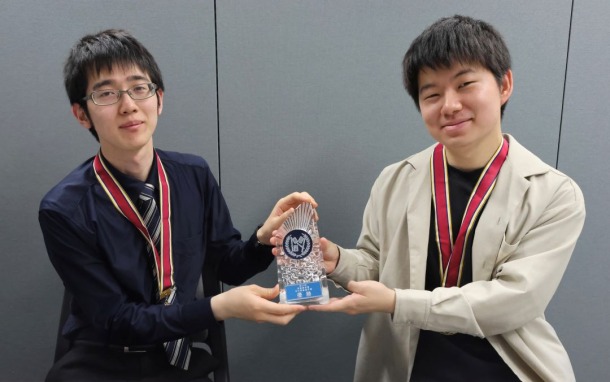
After the interview, the two players hold the Blue Sparrow Flag Student Mahjong Championship trophy.
No.872
Interview, text and photography: Waseda Weekly Reporter (SJC student staff)
Watanabe Shino, 3rd year student School of Education
【Profile】
Yoshitake Kodama: Born in Tokyo. Graduated from Waseda University Waseda University Honjo Senior High School. Lived overseas in Hawaii, Melbourne, and Singapore until junior high school. In high school, Kodama was a member of the table tennis club and the karuta club. Kodama's hobbies are poker and shogi.
Kei Asai: Born in Aichi Prefecture. Graduated from Taki High School. In high school, Asai was a member of the track and field club and entered the Department of Japanese Language and Literature School of Education with the aim of becoming a Japanese language Faculty. Asai plays the flute at the Inuyama Festival in Aichi Prefecture, a nationally designated important intangible folk cultural asset.
Waseda Mahjong Club X: @wasedakmc2014

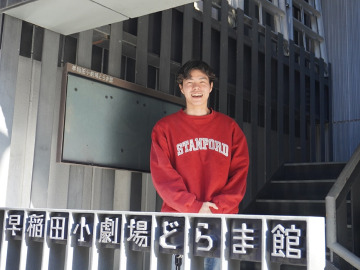
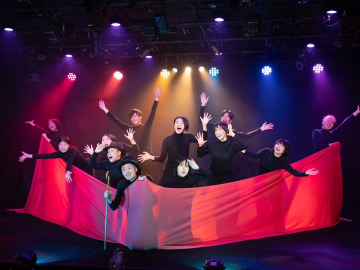
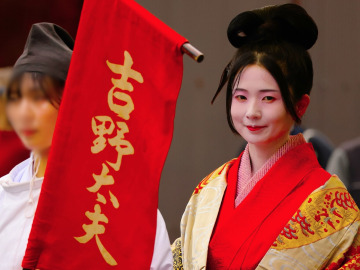
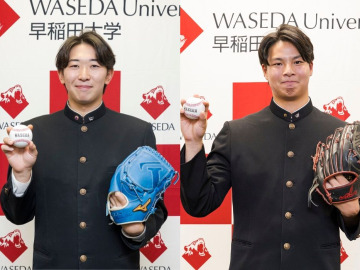

![[Save version] Map of the four main campuses](https://www.waseda.jp/inst/weekly/assets/uploads/2025/09/17cb2975123fc5103172ef60bd98608d-610x458.jpg)

